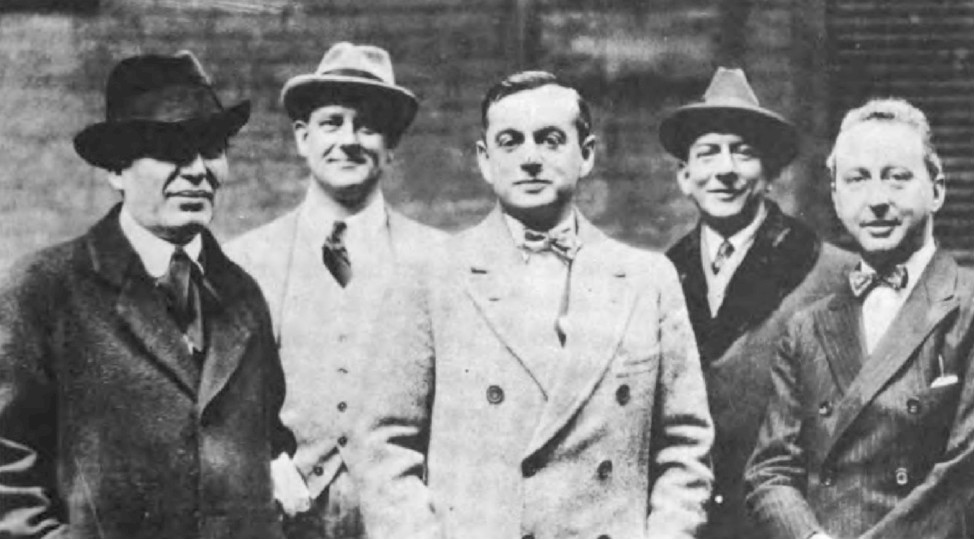Guy Bolton
 Guy Reginald Bolton (23 November 1884 – 4 September 1979) was an Anglo-American playwright and writer of musical comedies. Born in England and educated in France and the US, he trained as an architect but turned to writing. Bolton preferred working in collaboration with others, principally the English writers P. G. Wodehouse and Fred Thompson, with whom he wrote 21 and 14 shows respectively, and the American playwright George Middleton, with whom he wrote ten shows. Among his other collaborators in Britain were George Grossmith Jr., Ian Hay and Weston and Lee. In the US, he worked with George and Ira Gershwin, Kalmar and Ruby and Oscar Hammerstein II.
Guy Reginald Bolton (23 November 1884 – 4 September 1979) was an Anglo-American playwright and writer of musical comedies. Born in England and educated in France and the US, he trained as an architect but turned to writing. Bolton preferred working in collaboration with others, principally the English writers P. G. Wodehouse and Fred Thompson, with whom he wrote 21 and 14 shows respectively, and the American playwright George Middleton, with whom he wrote ten shows. Among his other collaborators in Britain were George Grossmith Jr., Ian Hay and Weston and Lee. In the US, he worked with George and Ira Gershwin, Kalmar and Ruby and Oscar Hammerstein II.Bolton is best known for his early work on the Princess Theatre musicals during the First World War with Wodehouse and the composer Jerome Kern. These shows moved the American musical away from the traditions of European operetta to small scale, intimate productions with what the ''Oxford Encyclopedia of Popular Music'' calls "smart and witty integrated books and lyrics, considered to be a watershed in the evolution of the American musical." Among his 50 plays and musicals, most of which were considered "frothy confections", additional hits included ''Primrose'' (1924), the Gershwins' ''Lady, Be Good'' (1924) and especially Cole Porter's ''Anything Goes'' (1934).
Bolton also wrote stage adaptations of novels by Henry James and Somerset Maugham, and wrote three novels on his own and a fourth in collaboration with Bernard Newman. He worked on screenplays for such films as ''Ambassador Bill'' (1931) and ''Easter Parade'' (1948), and published four novels, ''Flowers for the Living'' (with Bernard Newman, 1958), ''The Olympians'' (1961), ''The Enchantress ''(1964) and ''Gracious Living'' (1966). With Wodehouse, he wrote a joint memoir of their Broadway years, entitled ''Bring on the Girls!'' (1953). Provided by Wikipedia
